Public Health News
Industry Perspective
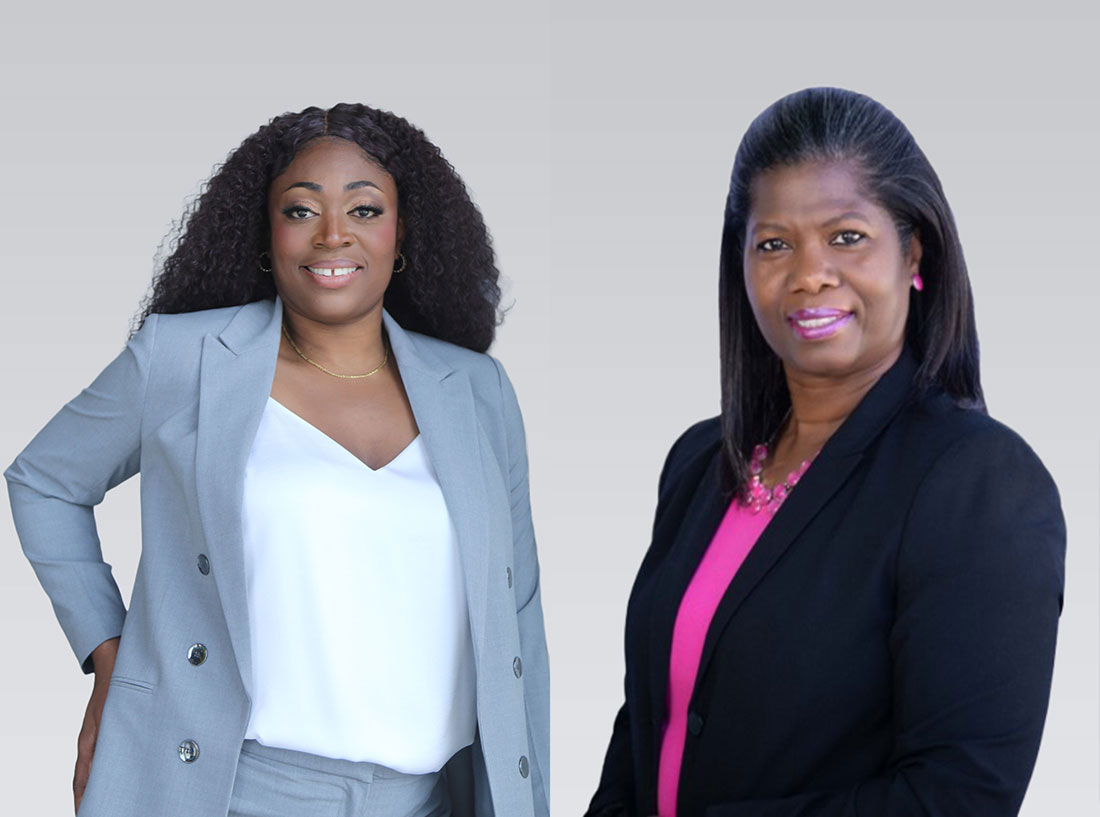
Falk College is pleased to welcome two new board members to the Falk College Advisory Board: Andrea Massop Ramos, MCN, and Tatiana Warren, Ph.D.
The Falk College Advisory Board champions the mission of the college and University to students, alumni, colleagues, and prospective supporters. Board members provide industry perspective and guidance, so Falk students are prepared to enter changing professional fields. They exemplify the values of social responsibility in their citizenship and embody the University’s commitment to diversity and inclusion.
“Falk College is in an exciting season of growth,” says Falk College Dean Jeremy Jordan. “Our primary focus is on elevating the student experience—supporting career readiness through the expansion of purposeful experiential learning opportunities for students. Our Advisory Board plays a crucial role in this effort by bringing insights from a variety of professional disciplines and helping forge corporate and community partnerships. I am confident that Andrea Massop Ramos and Dr. Tati Warren will add valuable contributions in these and other influential ways.”
Andrea Massop Ramos, MCN, is an award-winning clinical nutritionist. After a 20-year career with the airlines, she became the operations manager for Metro North Railroad, where she founded Healthy4U, a Corporate Health and Well Being Group. As an adjunct professor of Clinical Nutrition at New York Institute of Technology, Ramos teaches a required nutrition course for all health professionals. She founded Healthy FRIENDZ Nutrition, LLC, which uses a hands-on culinary platform to teach nutrition education to children and families in a fun, interactive setting. She is also a nutrition consultant for CBS Survivor Productions. Ramos earned her master of science degree in clinical nutrition from New York Institute of Technology.
“Andrea is a clinical nutritionist, private health chef, and entrepreneur,” says Falk College Assistant Dean of Advancement Megan Myers. “We are confident that she will help Falk College expand our connections to the wider community, providing our students with hands-on learning experiences, internships, and job opportunities.”
Tatiana Warren, Ph.D., is a distinguished health equity strategist who established Just TATI, a multimedia initiative to inform and disseminate accurate and evidence-based health topics to diverse audiences. She consults health professionals, community-based organization leaders, educators, and community members in the implementation and evaluation of their health programs. As founder of Just TATI, she works on social justice projects with highly capable and driven organizations that don’t have access to the funding or resources they need to deliver impactful and sustainable community outcomes. She does this by providing access to secure funding and focusing on empowering and elevating local communities.
Warren currently serves as lead Social Scientist Evaluator with Veritas Management Group on projects with The Food and Drug Administration Office of Minority Health and Health Equity and the Centers for Disease Control and Prevention Division of Nutrition, Physical Activity, and Obesity. She also co-leads the Community Engagement and Dissemination Core Advisory Board for the Johns Hopkins Center for Health Disparities Solution.
“As a health equity expert, consultant, and social scientist, Dr. Warren brings a wealth of knowledge and skills related to diversity, equity, inclusion, and accessibility,” says Myers. “As a former Syracuse University track and field student-athlete, she brings a unique perspective to diversity issues among athletes.”
Falk College academic degree programs focus on holistic health and wellbeing, human performance, and sport business enterprise. The college’s signature emphasis on experiential learning supports student success through intentional internship requirements, faculty-mentored research projects, immersion travel, and global study abroad. At every stage of their education, Falk College students engage in meaningful work to advance their disciplines and careers.
Meet all members of the Falk College Advisory Board on the Falk College website.
Real-World Applications
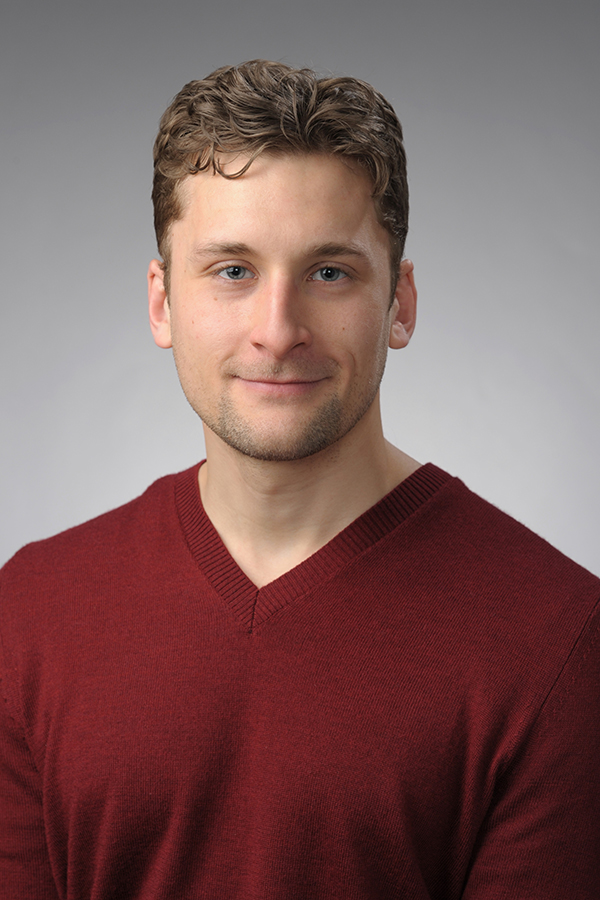
In America, it is a sad reality that your ethnic background and zip code can be a contributing factor to the likelihood that you become a victim of both fatal and non-fatal firearm violence. Data from the Centers for Disease Control and Prevention show that Black, Hispanic and American Indian/Alaska Native individuals experience a higher prevalence of firearm violence nationwide.
A confluence of social, economic and systemic factors—under resourced communities, weak gun laws, inadequate educational and employment opportunities, and systemic racial inequities—all contribute to this disparity. But to what extent do place-based community factors also contribute to, or protect against, this elevated risk? And how do these factors converge to make our communities of color more or less safe?
A team of researchers, including Bryce Hruska, assistant professor of public health in the David B. Falk College of Sport and Human Dynamics, David Larsen, chair and professor of public health at Falk, and Margaret Formica, associate professor of public health and preventive medicine at Upstate Medical University, seeks to better understand these questions as they relate to firearm violence risk and potential urban design solutions in Syracuse.
With over $250,000 of funding from the National Institute on Minority Health and Health Disparities over a two-year grant, the team hopes their analysis of the firearm violence landscape in Syracuse will have real-world applications as the city considers its future, especially as it relates to the I-81 Viaduct Project, as well as other urban renewal projects across the country.
In this Q&A, Hruska, the study’s principal investigator, shares more about the research and its potential to influence the development of public policies aimed at reducing firearm violence in Black communities in Syracuse and elsewhere.
What are the environmental factors you are analyzing in correlation to firearm violence and why is it important to look at them holistically?
We’re focusing on four different place-based factors: residential segregation, vacant and abandoned properties, green space access, and walkability (how easy it is to get around a neighborhood).
Existing research indicates that when we look at each of these factors independently, they impact rates of firearm violence. Neighborhoods with more segregation tend to have more firearm violence. More vacant, abandoned properties correlate with more firearm violence. If a neighborhood is more walkable, there are more opportunities for crime to occur; we see more violence. Green space access is a protective factor—in places with well-maintained parks, firearm violence tends to be lower.
Our research takes it a step further by examining all these factors at once to see how they relate to one another and how these dimensions might define different types of neighborhoods. For example, a neighborhood might have elevated rates of segregation, more walkability, a lot of green space access, and low vacant housing. So they’ve got two things that are protective—lots of green space, not much vacant housing—but a lot of segregation and walkability.
It could be that we see high firearm violence rates in those neighborhoods, even with the two protective factors. That would tell us there’s something especially notable about the combination of higher levels of segregation and walkability, and we need to target those factors. I think of them as different levers that you can pull to try to address firearm violence. We’re not going to really be able to know which combination of levers is most important unless we look at them all together.
How are you synthesizing multiple data sources to inform this research?
We’ll look at information from the U.S. Census Bureau on segregation here in Syracuse, as well as local data provided by the city. They have an open data portal we can use to gather information on vacant and abandoned housing and walkability. Green space access can be examined by working with local organizations and looking at what parks exist on the map here in Syracuse. We’ll leverage data from the Central New York Crime Analysis Center (firearm fatalities) and the State University of New York Upstate Medical Center (non-fatal firearm injuries).
As we pull information from several different sources, we’ll have one data set that contains all of the factors we’re evaluating. Then, using a statistical technique called latent profile analysis, we can take these four different community level factors and try to tease out whether there are different neighborhoods that tend to have similar values on these different factors. This technique will reveal how these place-based community features interact to create neighborhood profiles that specifically position Black Americans for gun violence exposure.
How do you hope to bring this research and its outcomes into application in the public health space?
We are in a unique position here in Syracuse because we’re on the cusp of trying to redesign the whole city as we start to tear down I-81 and redesign the city’s neighborhoods. The work we’re doing can serve as a baseline. We can say, “Here’s what Syracuse looks like right now before changes occur,” and our results could inform the policies and the actions that we take here in Syracuse.
For example, during a recent open forum on the I-81 project attended by various community representatives and leaders, there was discussion about the need to make neighborhoods really walkable for residents. And that’s great, we want neighborhoods to be walkable—but we know from existing research that there may be some caveats to that. And if we don’t tackle these other environmental dimensions, making a place more walkable could actually be problematic and increase rates of firearm violence if other factors aren’t taken into account.
Our research can help inform these types of decisions. We will be able to see the current state of our neighborhoods in terms of how they vary on these different dimensions, how these variations relate to firearm violence, and how these data might inform how we design these neighborhoods over the next five to 10 years.
We hope these findings can help right here in our backyard while also providing information that can translate across the country. Firearm violence has ticked up in the last several years in many cities across the U.S., and we need to find effective ways to address it. Tackling these environmental features that serve as the backdrop against which this violence occurs has been shown to be an effective way to address it. We’re trying to create a more precise way of identifying which combination of factors might be most impactful to create safer living spaces for all.
An SU News story by Jen Plummer originally published on March 21, 2024.
Exploring Careers
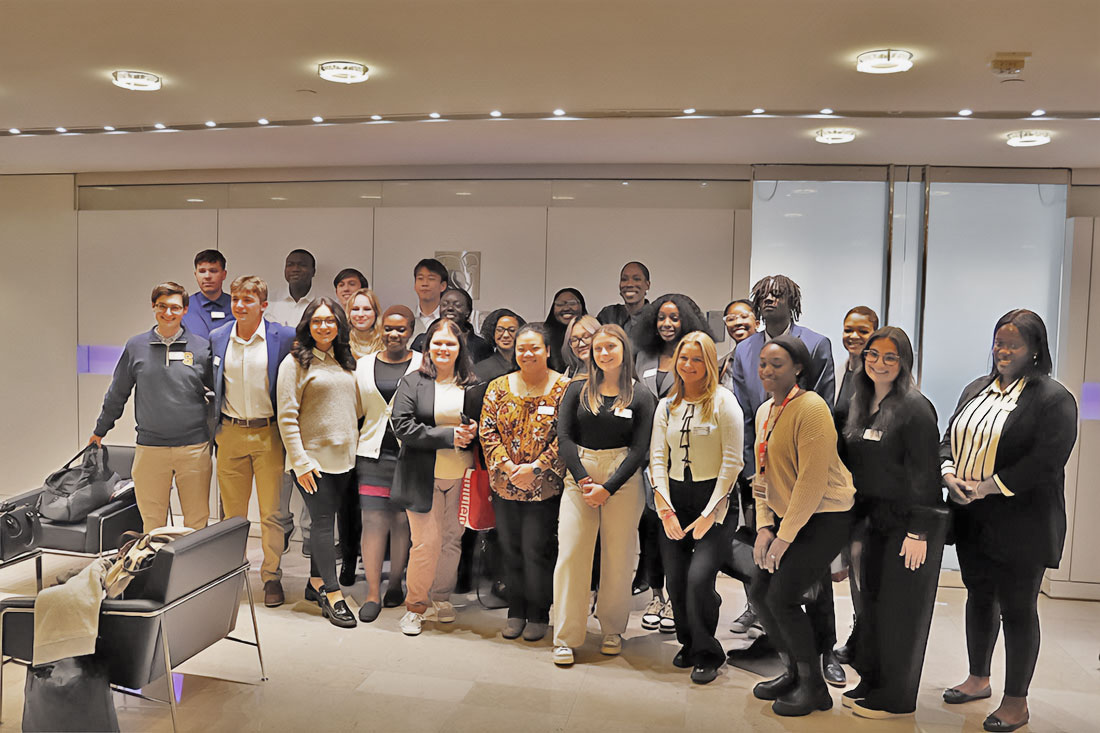
The Falk College of Sport and Human Dynamics at Syracuse University is a unique college with a diversity of programs from Exercise Science to Social Work to Sport Analytics.
The common denominator is Falk’s focus on experiential learning, and this past fall 27 students representing on-campus and online programs from all departments participated in one of the college’s most immersive experiences: the “Falk in D.C. Career Exploration Trip” hosted by the Office of Career Services.
It was the third Falk in D.C. trip, but the first that included separate tracks for health/human services and sport-related careers, with all attending Falk students joining together for select site visits and panels that represented both health and sport professionals. The students engaged with alumni and employer representatives from 28 Washington, D.C., and Baltimore area organizations through site visits and panels, and even more at the alumni networking reception.
“The combined nature of the trip allowed many students to expand their professional interests and discover the overlap between health and sport professions,” says David Sly, associate director of career services. “Over the course of the trip, all attending students demonstrated new or improved ability and confidence in career skills including networking, industry knowledge, communication, and awareness of professional values.”
Health students met with representatives from the FDA, USDA, CDC, Bread for the City, Urban Institute, and MedStar, among many others. Sport students met with representatives from several organizations, including Under Armour, Big League Advantage, Washington Commanders, Monumental Sports and Entertainment, DC United, and Leveling the Playing Field.
All students participated in visits with the NFL Players’ Association, Washington Nationals, Building Bridges Across the River, Living Classrooms Foundation, and PeacePlayers, International.
“The Falk in D.C. Career Immersion Trip gave me the opportunity to learn about the vast array of options that will be there for me post-graduation in the public health field,” says public health major Brinda Parikh ’26. “Being able to hear firsthand from industry professionals about their experiences throughout their careers was very eye-opening, and this trip helped me grow my network of Syracuse University alums that could help me in my own career in the future.”
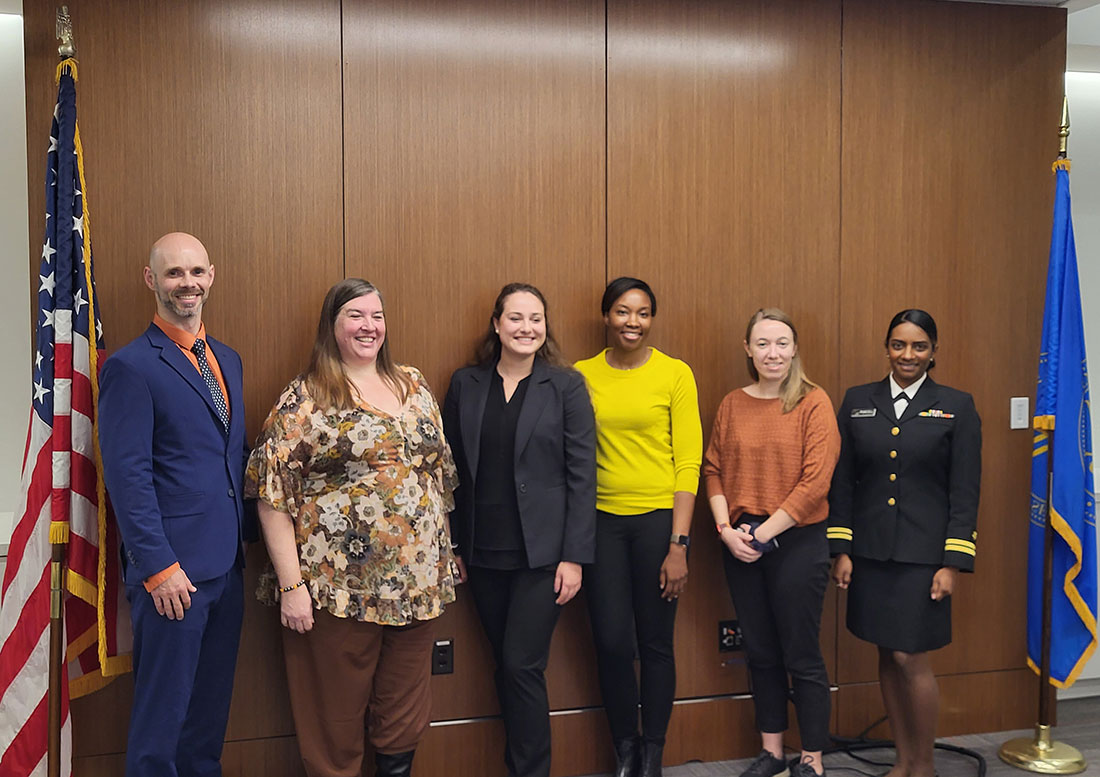
When the students returned from D.C., Career Services asked for their reflections of the trip, how it fit into their decision to attend Syracuse University, and their career goals. Here, we’re sharing responses from five students from across the college: master of social work student Nicole Corrente, public health major Tommy DaSilva ’26, health and exercise science major Alexia Harris ’26, sport management major Brianna Nechifor ’26, and sport analytics major Liam Roberts ’27.
Why did you choose Syracuse University and Falk College?
Alexia Harris: I chose health and exercise science because I have always loved studying the way the body works and moves. I chose Syracuse University because its program is amazing and has already set me up for success in my first semester here.
Tommy DaSilva: I chose both of my majors (public health and policy studies) because I wanted to be able to improve the lives of others through government action or nonprofit community work.
Brianna Nechifor: I chose to become a sport management major because I was encouraged to enter the industry by my tennis coaches and friends who saw my burning passion for sports. I chose Syracuse University because of the community and opportunities that are available to me, including the Sales and Marketing Club, Sport Management Club, and WISE (Women in Sports and Events).
Nicole Corrente: I’m a graduate student of social work who’s originally from Syracuse, so choosing Syracuse University was a natural fit.
Liam Roberts: Outside of school my biggest passion has always been sports and in school I always enjoyed math and working with numbers. As a result, the sports analytics major was perfectly catered to what I am interested in and what I want to do in life. The opportunities this major provides, including ones like this D.C. trip, were not available anywhere else and it’s ultimately why I chose to attend Syracuse.
What are your top three highlights so far from your Syracuse University experience and what are your career goals?
Brianna Nechifor: My top three highlights have to be the introduction of the new esports major, a field that I am very passionate about; the Falk in D.C. Exploration Trip; and the Sport Management Charity Sport Auction (shoutout to the Sales Committee!). My ultimate career goal is to work in esports, possibly in event management.
Nicole Corrente: My top three highlights have been my graduate coursework and research; the Falk in D.C. trip; and all the amazing connections I’ve made along the way. In the future, I plan to have a career in anti-trafficking efforts as a therapist for survivors of trafficking.
Alexia Harris: My top three highlights so far are setting up my internship with strength and conditioning in the athletics complex for next semester; being able to go on the Falk in D.C. trip; and all the different campus opportunities available. My ultimate career goal is either to go into athletic training or sports nutrition.
Liam Roberts: My Syracuse experience has only just begun, so my highlights are likely still to come. But so far, my No. 1 highlight would definitely be this trip, while other great experiences are connecting with Professor (Shane) Sanders and participating in the basketball and baseball analytics clubs.
Tommy DaSilva: Highlights of Syracuse so far have been my service-learning work with International Services and the YWCA; the work done by my organization SAPHE (Student Association of Public Health Education); and the professional connections I have been able to make. I don’t have a specific ultimate career goal as I’m open to any opportunities that come my way, as long as they can be used to help someone in some way.
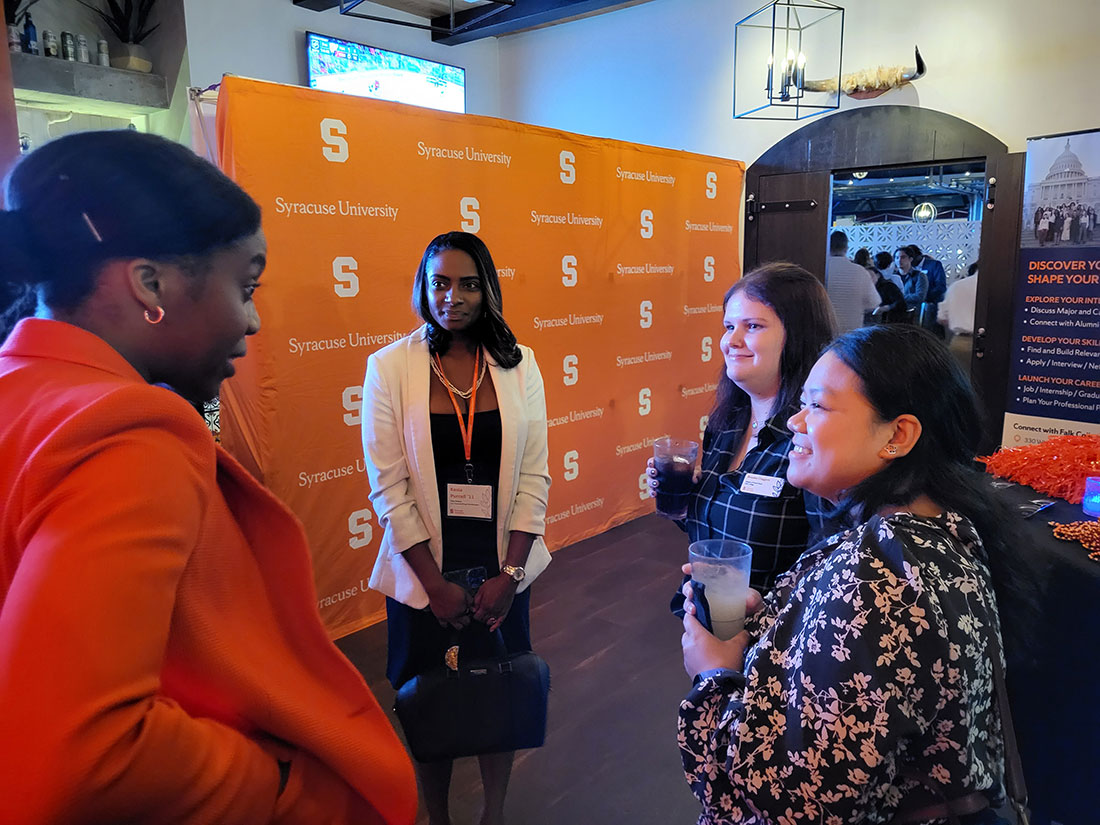
What is your most memorable takeaway from the Falk in D.C. trip?
Liam Roberts: I engaged with and explored exciting opportunities within the sports industry that I would have otherwise never been able to experience, and in a manner that was fun and interesting. This experience was one that I could not see myself getting anywhere else and I’m glad I had the opportunity to join.
Alexia Harris: This trip provided me with exposure to a lot of different employment opportunities and fields that I had never thought about before, as well as connecting me to a wide variety of people.
Tommy DaSilva: This trip gave me insight into potential careers that I would have never thought possible without these face-to-face conversations.
Brianna Nechifor: I was able to interact with a variety of perspectives in the sports industry, even those you may not think you have a connection with them. Everything is in one way connected, and this trip can help shift your opinions on different sectors of the industry. It’s honestly something you shouldn’t be afraid to apply for!
Nicole Corrente: This was an amazing experience! This trip provided me with once-in-a-lifetime opportunities to meet representatives from the CDC, HHS, ACFS, and several nonprofit agencies. Learning about these organizations taught me a lot about the importance of a strong work ethic and an open mind. I look forward to staying connected to the Syracuse University alumni that I met and staying engaged with the work they’re doing in D.C.
Students interested in the “Falk in D.C.” trip in the Fall 2024 semester can watch a video summary of the trip and find Fall 2024 updates on the Falk Careers home page.
High Honors
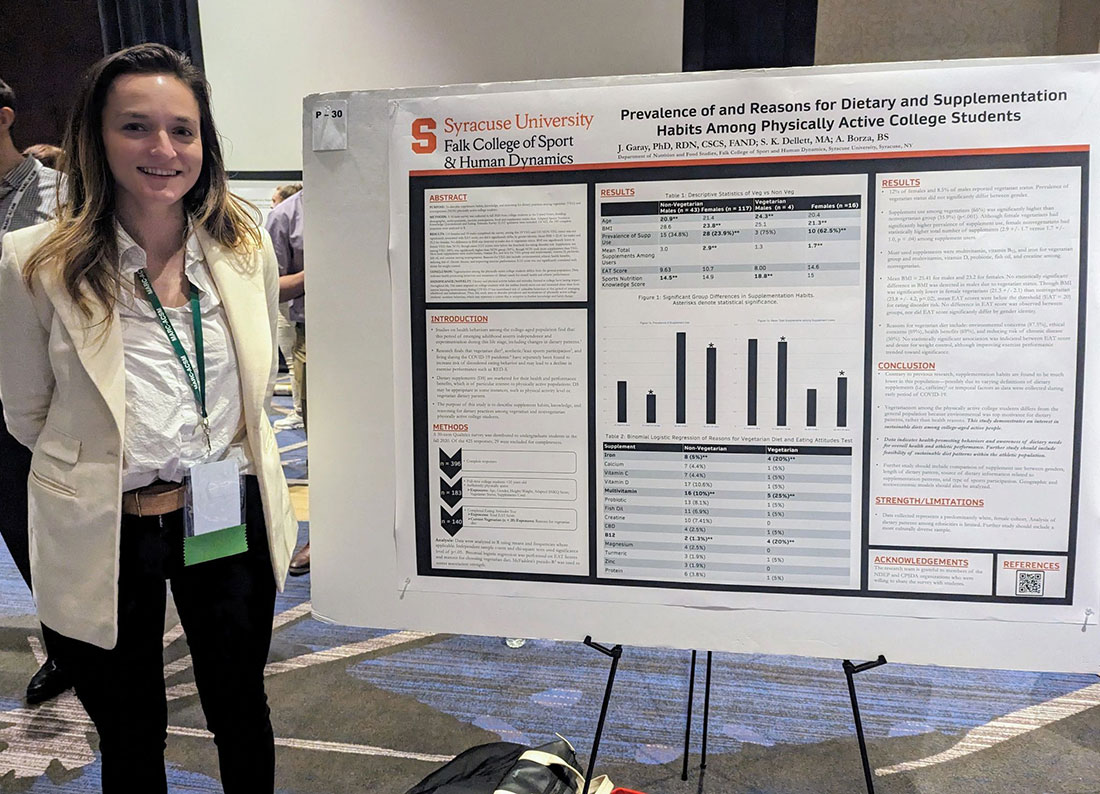
Falk College boasts a robust, collaborative research community in which students play an active role. At Falk, graduate and undergraduate students have the opportunity to work directly with faculty to collect data, analyze findings, and draw conclusions on relevant topics surrounding exercise science, human development and family science, marriage and family therapy, nutrition and food studies, public health, social work, and sport management.
Falk students accompany their faculty research mentors to leading academic conferences across the country, and commonly receive high honors for their accomplishments in research. Danny Baris, Sarah Dellett, and Mingxuan (Jessica) Li are three examples of students who have been recently honored for their research.
We asked them to discuss their research and here’s what they shared:
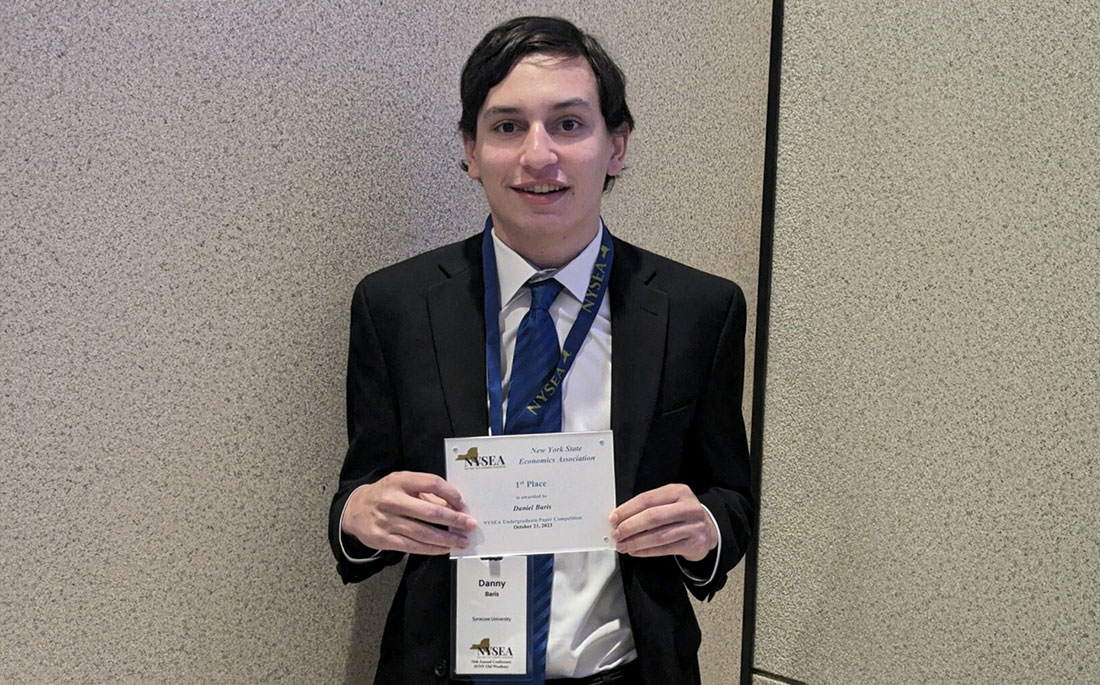
Danny Baris ’26
B.S. Sport Analytics
Danny Baris ’26 won the student paper competition at the New York State Economics Association annual conference in October 2023 in Old Westbury, New York, where he presented his research, “Promotions and United States Hockey League Attendance,” under the guidance of Professor Rodney Paul.
“As someone who enjoys attending sports games, the topic of promotions is of great interest to me. For my paper, I wrote about the effects of various types of gameday promotions on attendance for minor league hockey. Through this project, I was able to gain valuable experience conducting a study, writing a research paper, and presenting my findings.
“My findings could be used to help teams set their promotions schedules in ways that maximize revenue. Future research could examine the effects of promotions in other sports leagues. Along with some other students, I am currently working on a project surrounding the effects of promotions across minor league baseball.”
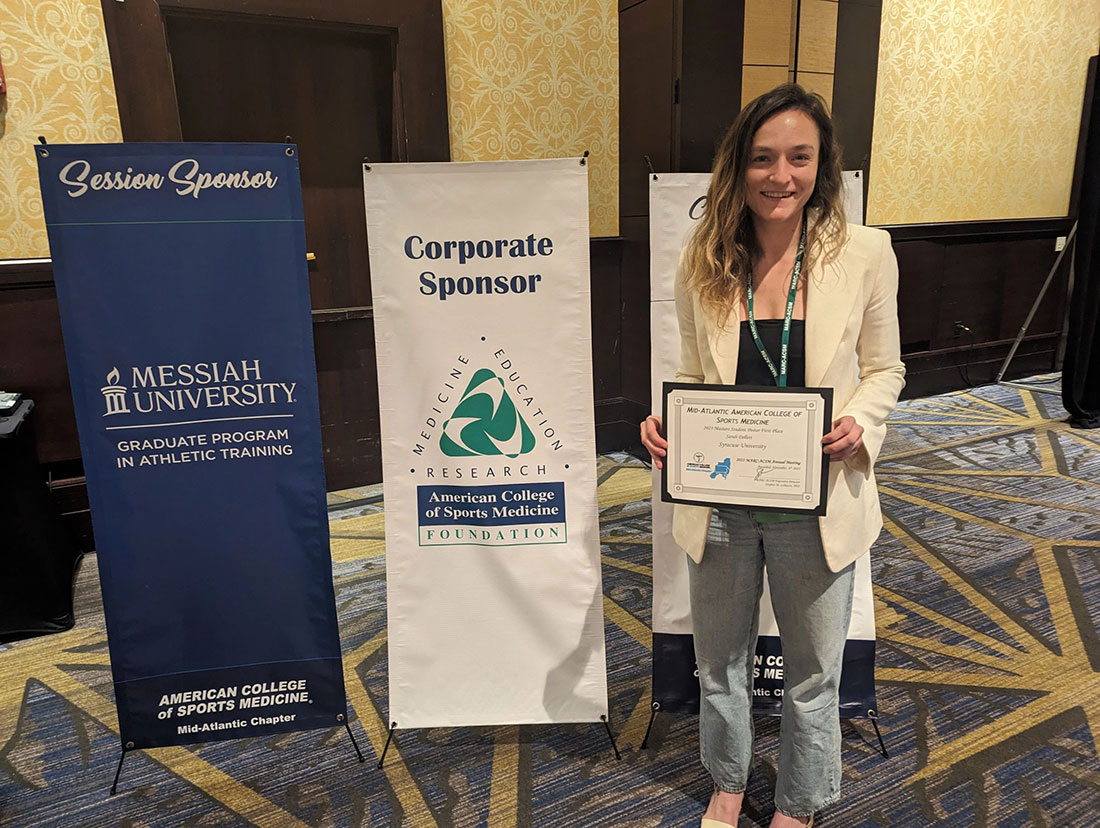
Sarah Dellett
M.A. Nutrition Science
Sarah Dellett received first prize among students in master’s degree programs at the Mid-Atlantic region of the American College of Sports Medicine annual meeting in November 2023 for her research “Prevalence of and Reasons for Dietary and Supplementation Habits Among Physically Active College Students,” under the guidance of Professor Jessica Garay. Through Sarah’s work in Professor Latha Ramalingam’s Nutrigenomic Lab, where she studies metabolic improvements and genetic differences with omega-3 supplementation, Sarah discovered her ambition to become a clinical researcher in the wide field of nutrition science.
“I loved my statistics and research methods class during my first year and wanted to further hone my analytical skills using R Studio. I linked up with Dr. Garay over the summer to explore her dataset collected on athletes in fall 2020. She helped me critically think through the methodology and correctly describe statistical results for my presentation.
“I found my passion for this project as I’m interested in how sustainable, plant-based diets can be a balanced diet for athletes. This research showed unique developments within vegetarianism, as the most common reason for adopting a vegetarian diet among this cohort is environmental, rather than animal rights reasons. We also found that the vegetarian group had a higher level of nutrition knowledge and had supplementation habits that reflected an understanding of their need to supplement with Vitamin B12 and iron, commonly deficient in vegetarians.”
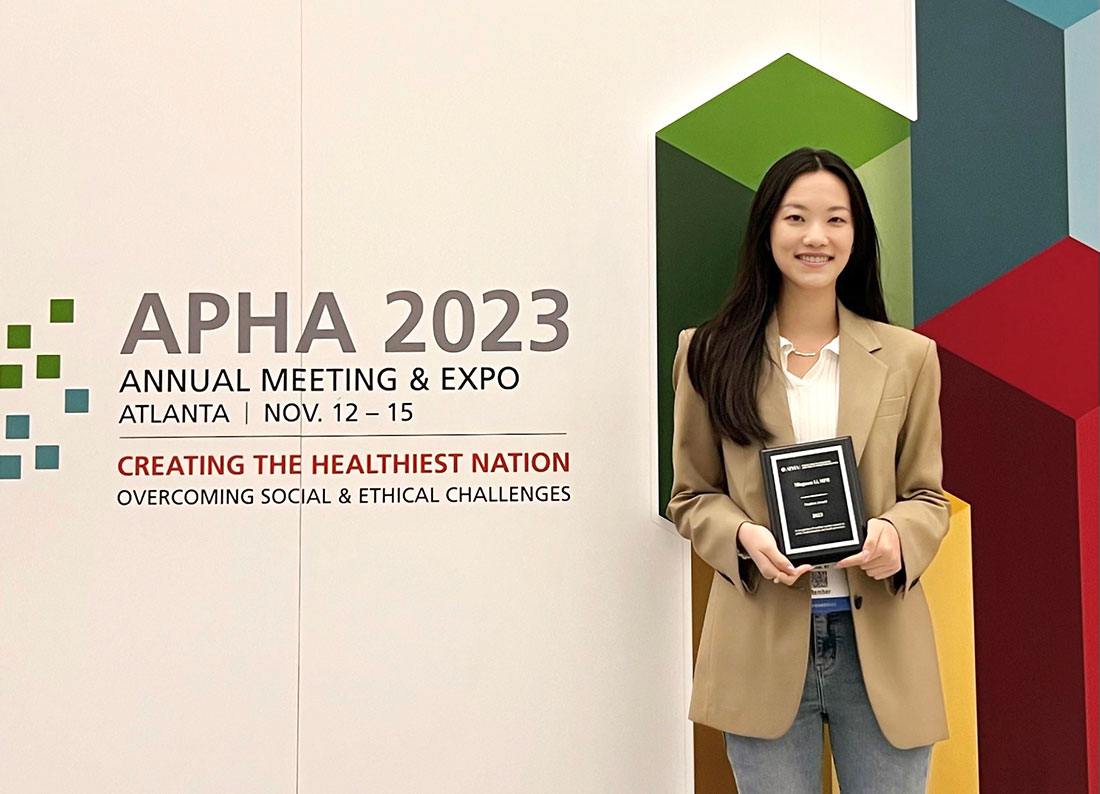
Mingxuan (Jessica) Li
Master of Public Health
In November 2023, Mingxuan (Jessica) Li attended the American Public Health Association annual meeting in Atlanta, Georgia, where she accepted the Public Health Education and Health Promotion Student Award on behalf of her fellow students, Michelle Asiedu-Danso and Matthew Scrape. There, Jessica, Michelle, and Matthew were recognized for their research, “Prostate Cancer Screening and Treatment in New York State: A Content Analysis of Articles Published by Newspapers Focusing on People of Color,” completed under the guidance of Professor Bernard Appiah.
“Our goal of this study is to understand how newspapers for people of color discuss prostate cancer, examining both risk factors and media representation. We identified a significant gap in news coverage for people of color on this crucial health issue. Our mission was not just to point out the issues but also to find ways to better share information about prostate cancer in these communities.
“It was a moment of immense honor and pride when standing as the first author and presenter of our project in Atlanta. As we shared our findings and engaged with fellow researchers during the conference, we realized there are potential impacts that our work could have in raising awareness, fostering informed discussions, and shaping future research directions in prostate cancer. We hope our work has positive impacts not only on academic discourse but also inspires ongoing efforts to bridge communication gaps and champion health equity for all.”
Navigating New Horizons
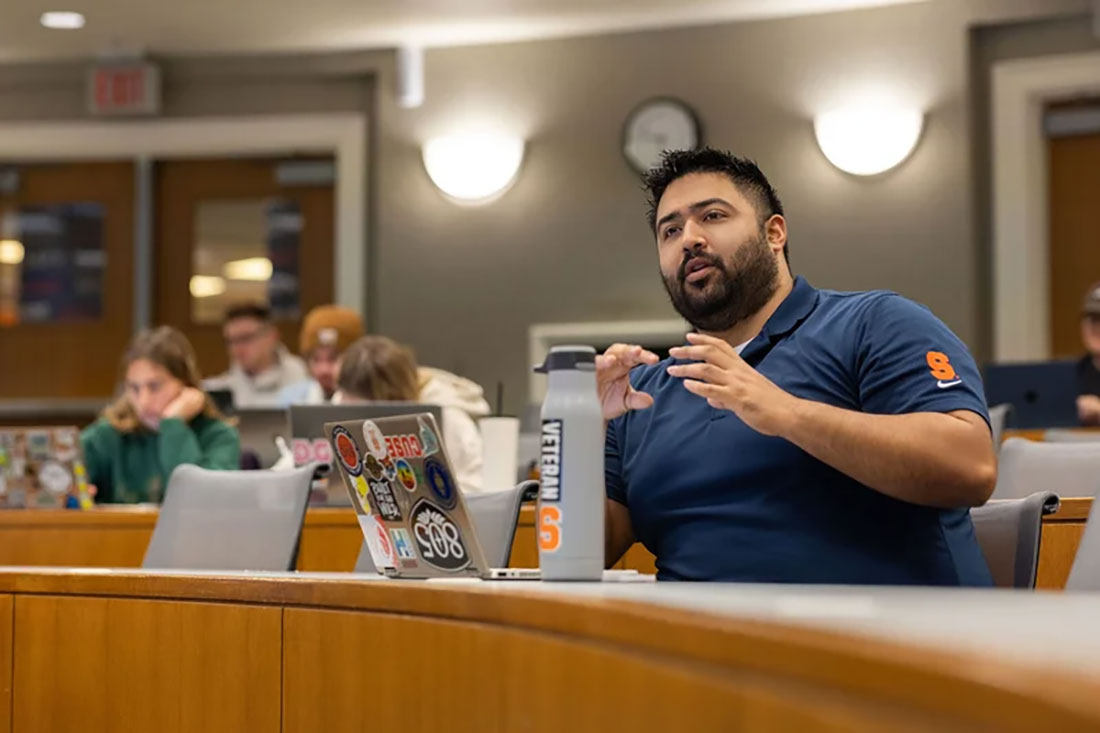
A few years ago, Raul Rosique ’24 was home in Richgrove, California, rehabbing a severely broken left leg. A U.S. Navy veteran, Rosique was studying kinesiology and exercise science at Bakersfield Community College and looking to continue his education at a four-year institution. Unable to walk for nearly a year, he watched a lot of movies and one, in particular, caught his attention: The Express, the 2008 film about Syracuse University legend Ernie Davis ’62, the first African American to win the Heisman Trophy. “It put Syracuse on my radar,” he says. “I researched Syracuse more and found out it’s really military friendly and a fantastic school. When I got in, my whole family was ecstatic, and I decided to get in the car and move here.”
Rosique arrived on campus in 2021 and navigated his way around on a scooter—the hills posed challenges, but were a minor blip on his radar. After all, he had served five years as an E5 logistic specialist on the nuclear submarine USS Charlotte, including two years total submerged in the depths of the Pacific. Stationed in Pearl Harbor, Hawaii, he managed the sub’s logistical needs and served as the mission driver on three different deployments. “My experiences on the submarine gave me all the motivation I need to be successful in college,” he says.
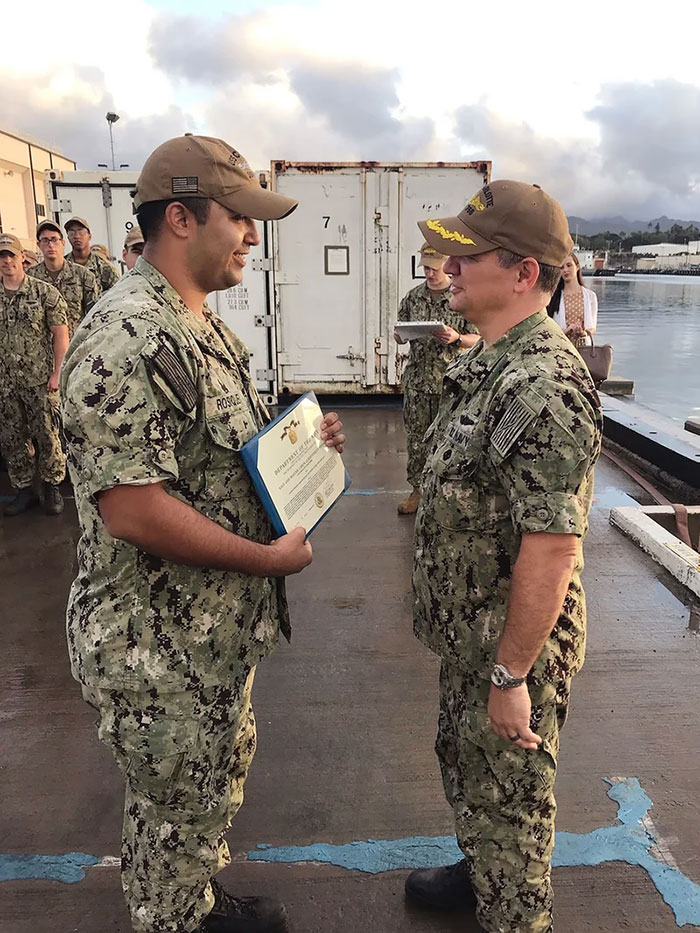
Pushing Through Physical Therapy
Rosique’s motivation is apparent. He has embraced the Syracuse community and his academics, immersed himself in student activities and helped fellow student veterans adjust to campus life. He’s also been honored by the University as a Hometown Hero for his service to the country. This spring, he’ll graduate from the David B. Falk College of Sport and Human Dynamics with a bachelor’s degree in health and exercise science on the pre-physical therapy track, as well as a certificate in healthcare administration from the College of Professional Studies. “Physical therapists changed my whole perspective of health and exercise,” he says. “Through the power of rehab, I could walk and do other stuff again.”
Rosique carried that perspective with him last summer as an intern with the Syracuse Athletics training staff, gaining experience helping Orange football players rehab from injuries. “I assisted the athletic trainers with anything they needed,” he says. “I was there to learn as much as I possibly could.”
Following graduation, Rosique plans to pursue a doctoral program in physical therapy or head to law school with a focus on healthcare administration. He credits Falk public health professor Lisa Olson-Gugerty for expanding his view of public health through her course Personal and Social Health. “I want to work at a VA hospital,” he says.
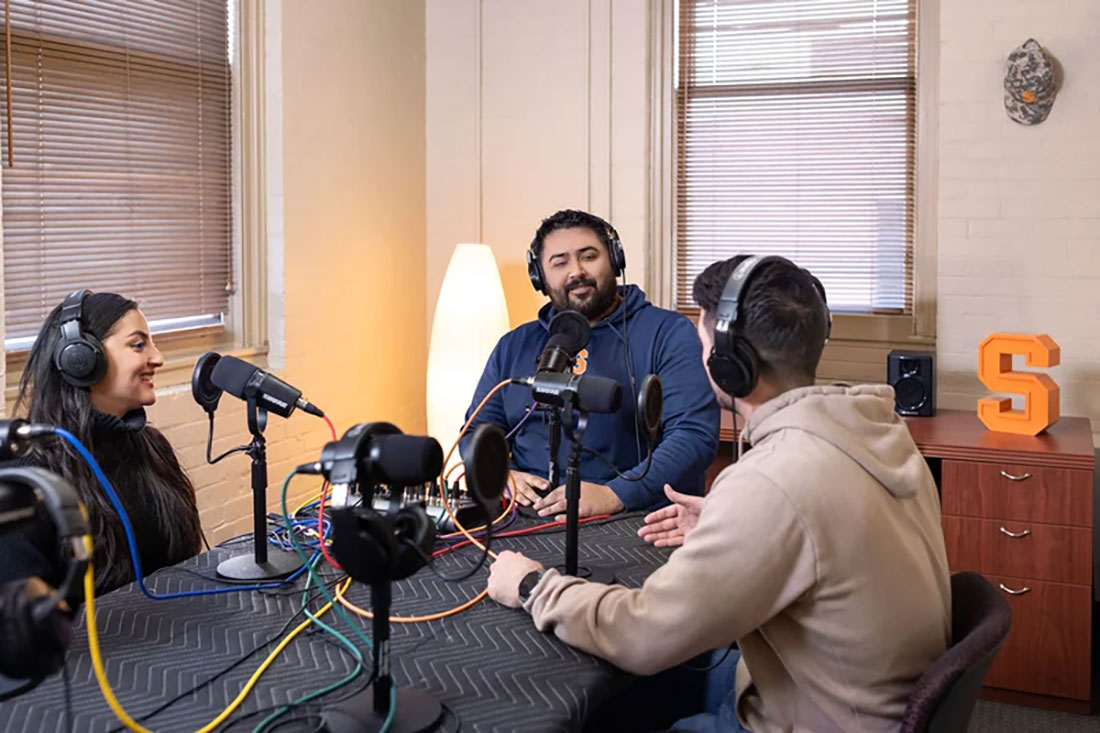
Welcoming Student Veterans
For Rosique, connecting with student veterans is a top priority. He serves as secretary of the Student Veteran Organization, helping plan events and welcoming new student veterans to campus. He shares advice and his perspective as both a nontraditional and first-generation college student. He tells them college may be overwhelming at first, but they’ll adjust because they’ve conquered greater challenges in their military careers. “I know sometimes student veterans are afraid to ask for help,” he says. “I talk with them and tell them, ‘People at this campus want to help you, but they don’t know you need help if you don’t ask.’”
With encouragement from Amy Messersmith, associate director of HEOP and Trio SSS programs who served as his First-Year Seminar facilitator, he launched Deep Dive with Raul Rosique Jr., a podcast where he explores a variety of issues with other student veterans, including how they’ve navigated their transition to civilian life and higher education. He also works out with fellow veterans as a member of the Barbell Club and serves as the club’s social media officer. “We have groups for whatever your needs are, and we try our best to help everybody,” he says.
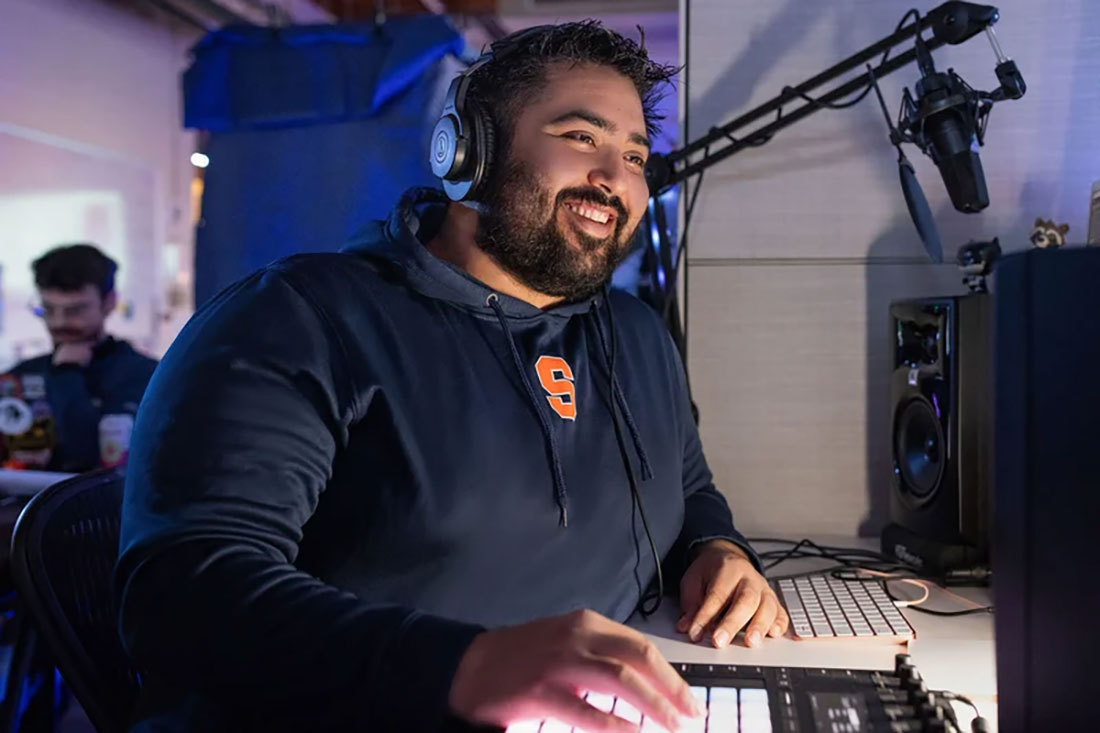
Rosique tapped into his social media savvy and familiarity with the Hill as a guide for a campus video tour on the University’s YouTube channel. He’s also familiarized himself with Syracuse’s proud military tradition, researching the history of veterans on campus as part of an internship with Mike Haynie, vice chancellor for strategic initiatives and innovation and founder of the D’Aniello Institute for Veterans and Military Families.
“Physical therapists changed my whole perspective of health and exercise.”
—Raul Rosique Jr. ’24
Amid all his activities, Rosique continues to rehab his leg. A metal plate and 16 screws were recently removed, and he says he’s “a million times better than I was when I transferred here.” He remains committed to ensuring student veterans are aware of the resources and benefits available to them and have the support they need to get through any obstacles they encounter. “People at Syracuse care about your mental health, your well-being. They care about you as a human being and your success,” he says. “That’s what I cared about and that’s why I wanted to get involved. And I try to help every single student veteran I come by.”
An SU Story by Jay Cox originally published on Jan. 26, 2024. In this Campus Tour video, Rosique takes you to his favorite spots on the Syracuse University campus: the National Veterans Resource Center, Steele Hall, Falk College, and the Barnes Center weight room.
Keeping Schools Open
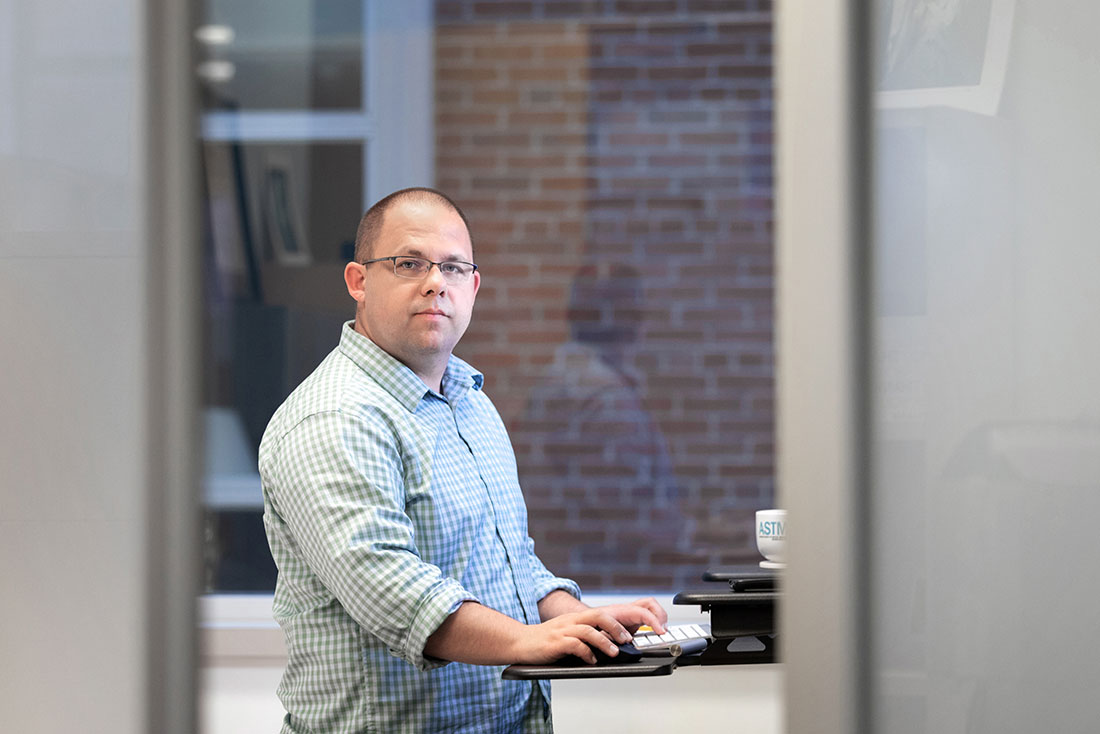
Wastewater surveillance is a potent tool in understanding COVID-19 transmission within school settings, according to a ground-breaking study led by epidemiologist David Larsen from Syracuse University’s Falk College of Sport and Human Dynamics.
The research team’s work that was published recently in PLOS Global Public Health establishes the pivotal role of wastewater analysis in managing the public health response to COVID-19 at schools.
The study focused on a middle and high school campus in Jefferson County, New York, serving 600 students and compared results from wastewater surveillance to COVID-19 case trends. The surveillance demonstrated high levels of sensitivity, positive predictive value (PPV), and negative predictive value (NPV) in wastewater surveillance. While the specificity of wastewater surveillance at the school was observed to be lower, the strong correlation between the amount of SARS-CoV-2 RNA recovered in wastewater and COVID-19 cases highlighted its potential in understanding transmission risk within the school.
“By analyzing wastewater samples, we observed a robust correlation between SARS-CoV-2 RNA levels and the number of confirmed COVID-19 cases within the school, providing critical insights into potential transmission,” says research team member Haley Kappus-Kron, an epidemiologist at the CDC Foundation.
The published study acknowledges the limitations of a one-day lead time of wastewater surveillance to predict clinical COVID-19 cases.
“The practicality of wastewater surveillance as an early warning tool heavily relies on timely reporting and swift actions following a positive sample,” says Kappus-Kron. “Nevertheless, in the absence of mass asymptomatic testing, wastewater surveillance presents an appealing and cost-effective approach to understand disease trends within school environments.”
While wastewater surveillance would not prevent all transmission, its role in understanding the extent of transmission could be critical in ensuring schools stay open as much as possible during a public health emergency due to an infectious disease. Applying wastewater surveillance in schools could potentially prevent unnecessary school closures and keep children in school longer.
“Wastewater surveillance will probably work for most infectious diseases, including the next public health emergency threat. With wastewater surveillance in schools, we may be able to keep the schools open longer and respond specifically to outbreaks rather than implement broad closures,” says Larsen, Professor and Chair of the Department of Public Health at Falk College who at outset of COVID in 2020 led an interdisciplinary team of experts in coordination with the New York State Department of Health to create a wastewater surveillance system throughout New York State.
As the world moves beyond the COVID-19 pandemic, schools may consider integrating wastewater surveillance into their emergency preparedness plans. The study advocates for school-specific plans that include access points, laboratory contacts, and protocols for effective wastewater sampling and analysis, especially during public health emergencies.
New Dean for Research
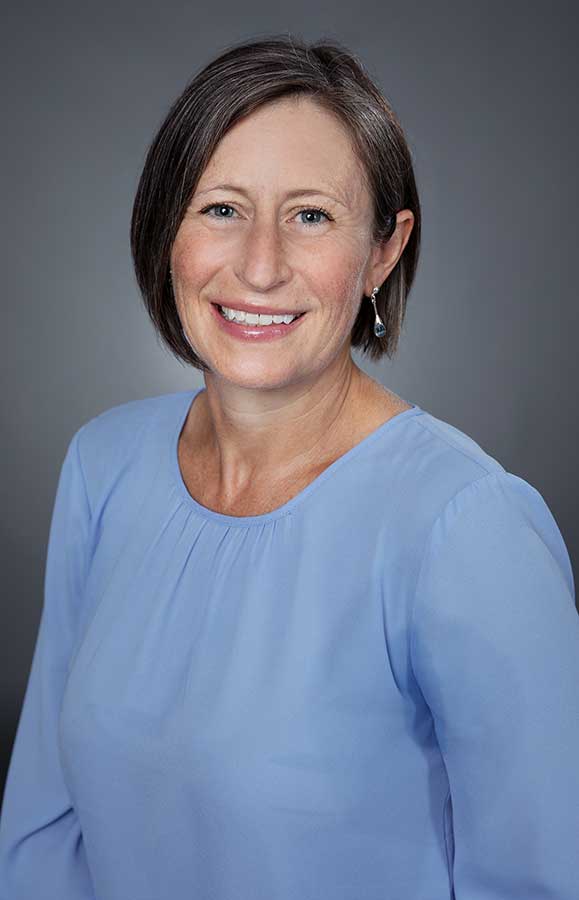
Katherine (Katie) McDonald, Ph.D., has been appointed Senior Associate Dean for Research and Administration in Falk College. As Senior Associate Dean, McDonald is responsible for the oversight of research, administration, and support for faculty; the supervision of the Falk College Office of Research Development; the development and implementation of Falk strategic initiatives; and representing Falk College on University-level committees as appropriate. The office reports directly to Falk College Dean Jeremy Jordan.
“Falk College research spans a wide range of disciplines with impactful, practical applications in individual health and community wellbeing,” Jordan says. “Thanks to Dr. McDonald’s leadership and her team in the Falk College Office of Research Development, the College has experienced steady growth in research activity by every measure, including grant funding, publishing, interdisciplinary collaborations, and student engagement. I am eager to see her influence expand as Senior Associate Dean for Research and Administration.”
McDonald’s new appointment follows a three-year appointment as Associate Dean of Research. During her tenure, McDonald worked collaboratively to establish programming to nurture faculty research, enhance connections on campus to fuel interdisciplinary research, and develop policy to foster research success.
“I am delighted to continue to serve Falk College in this new role,” says McDonald. “Falk College is home to students, staff, and faculty committed to creating and leveraging scientific discoveries to enhance human thriving. It is an honor to have the opportunity to work with so many talented people to co-chart our future.”
McDonald is a professor in the Falk College Department of Public Health, where she also served as chair from 2018 to 2020. She is a fellow of the American Association on Intellectual and Developmental Disabilities, chair of Syracuse University’s Institutional Review Board, and a member of the Editorial Board for Autism in Adulthood. At Syracuse University, she holds faculty affiliations in the Aging Studies Institute, the Burton Blatt Institute, the Consortium for Culture and Medicine, and the Disability Studies program.
As a scholar, McDonald uses socioecological theory and community-engaged research to understand and promote the inclusion of individuals with disabilities. She has made significant contributions to research in disability, health disparities, community-engaged research, and ethical, legal, and social issues in research. Her research has been supported by grant funding from the National Institutes of Health, U.S. Department of Education, the National Institute on Disability, Independent Living, Rehabilitation Research, and the Patient Centered Outcomes Institute, among others. She is published in leading journals such as the Disability and Health Journal, American Journal of Bioethics, and the American Journal on Intellectual and Developmental Disabilities.
She received a B.S. with distinction in human development and family studies with a minor in French from Cornell University and a Ph.D. in community and prevention research psychology with a minor in statistics, methods, and measurements from the University of Illinois at Chicago.
‘Same Playing Field’
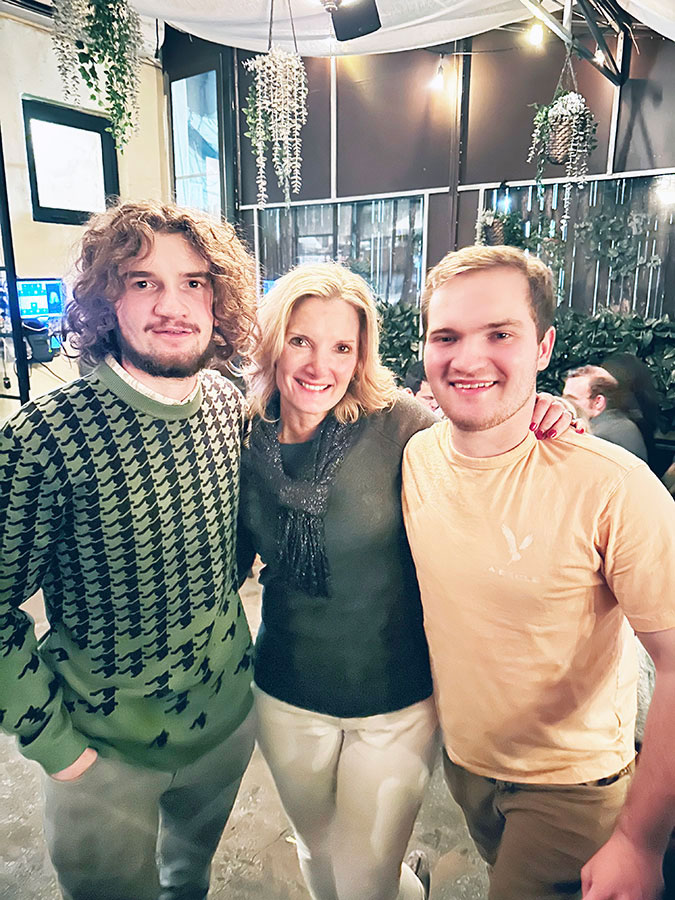
After David Sobczak ’23 enrolled at Syracuse University, he gravitated toward social work and helping others because of the time he had spent in hospitals as a child with cerebral palsy.
“He was in and out of the hospital for extended periods of time, and what he saw were a lot of kids who were in the hospital and literally no one ever came to see them,” says Dee Anna Sobczak, David’s mother. “With his family and friends, David was never alone, and we would embrace kids that were there and bring them into our circle. He realized then and there that he’s very lucky to have a support group and not everybody has that.”
Sobczak wanted to be a football coach, and he earned his undergraduate degree from the School of Social Work in the Falk College of Sport and Human Dynamics because a football team, like society, is made up of people from all walks of life. He wanted to learn how to best communicate with the players, show empathy for their individual situations, and build trust–the building blocks of social work.
Sobczak spent four seasons as offensive student assistant coach for the Syracuse football team, and he recently completed his first season as an offensive assistant coach for the University of Akron. Meanwhile, Sobczak’s younger brother, Danny, played football in high school and he and David told their mother that in both high school and college, many of the student-athletes struggled to pay for day-to-day items.
“What we found is that a lot of the students who were part of the team were on scholarship, but they weren’t funded for school supplies, their computer–all the things that would have set them up to be just as successful as their peers,’’ Dee Anna Sobczak says. “Many of the kids didn’t even have the money to buy lunch.”
As a result of those conversations, Dee Anna, David, and Danny, who graduated from the University of Colorado Boulder last spring, decided to create a fund to help Falk College students who are experiencing financial hardship. Working with Director of Development Megan Myers, who will become Falk’s assistant dean of advancement March 1, they created the Sobczak Family Student Support Endowed Fund that provides mini grants for an academic year.
“A lot of times, these students are trying to fight their way out of whatever situation they came from and start a new life for themselves,” Dee Anna Sobczak says. “This (fund) is to help set them up to be as successful as their peers, and that way everybody is on the same playing field as much as they can be.”
The mini grants are available to meet a wide range of needs and provide access to opportunities. Categories of support include emergency basic needs, fees, and supplies associated with the student’s educational program, and other critical student and human needs. Mini grants range from $100 to $300.
The Sobczak Family Fund is open to graduate and undergraduate students from the following Falk College programs: Exercise Science, Human Development and Family Science, Marriage and Family Therapy, Nutrition and Food Studies, Public Health, and Social Work. In the types of needs it addresses, the fund mirrors the Brandon S. Steiner Sport Management Student Support Fund for students enrolled in Falk’s Department of Sport Management.
Students may apply for assistance from the Sobczak Family Student Support Fund by filling out this application form and including documentation/information about circumstance. A student can’t be awarded funding more than twice.
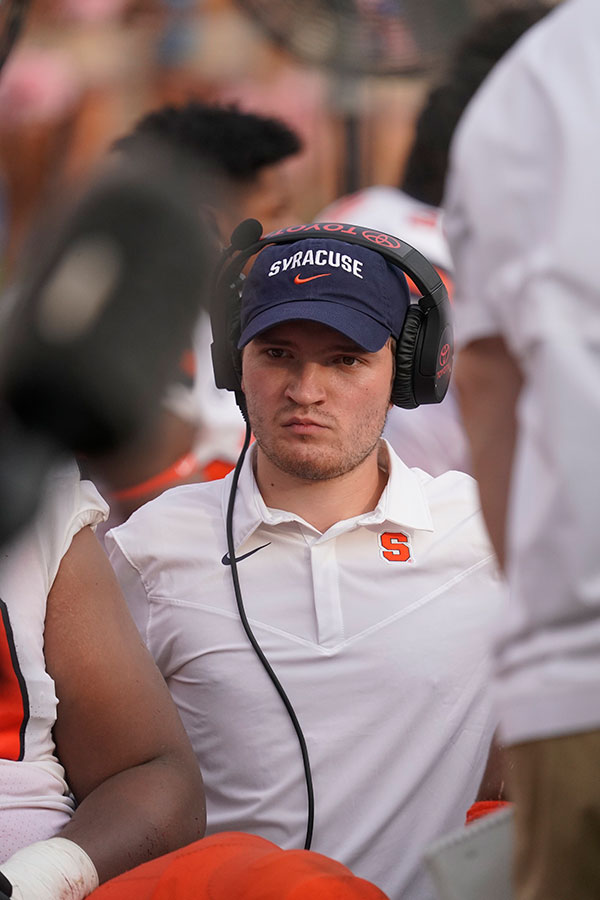
David Sobczak’s disability is physical, and his challenges are there for all to see. But what his Social Work education taught him and his family is that we don’t know everything that might be going on in a person’s life, and the family fund is for students whose challenges may not be so obvious.
“There are really special people in Social Work,” David Sobczak said in a fall 2022 interview. “When it comes to my career and where it helps me, I’m going to encounter–and I’ve already encountered–people with tough situations in their family lives and you’ve got to be there for them.
“So, you learn about empathy, how to deal with people, and how to communicate, and you also learn that we’re all people,” he added. “You treat people as people and that’s a life skill that will take you further than any education can ever take you.”
In that interview for a feature story that appeared before Syracuse’s bowl game in 2022, David talked about wanting to give back and serve as a role model for those with disabilities who have dreams of their own. The family fund for Falk Students, Dee Anna Sobczak says, is to help students overcome outside challenges to complete their education and realize their dreams.
“We want them to be the best version of themselves they can be, figure out who they want to be and what they want to do, and put a path together to get there,” Dee Anna says. “And also, to realize that nothing is impossible; if you can dream it, you can do it.”
In addition to the Sobczak Family Student Support Endowed Fund, there are other opportunities and awards available to students in Falk College. Please visit the Awards and Scholarships page on the Falk website for more information on how to apply.
About Forever Orange: The Campaign for Syracuse University
Orange isn’t just our color. It’s our promise to leave the world better than we found it. Forever Orange: The Campaign for Syracuse University is poised to do just that. Fueled by more than 150 years of fearless firsts, together we can enhance academic excellence, transform the student experience, and expand unique opportunities for learning and growth. Forever Orange endeavors to raise $1.5 billion in philanthropic support, inspire 125,000 individual donors to participate in the campaign, and actively engage one in five alumni in the life of the University. Now is the time to show the world what Orange can do. Visit foreverorange.syr.edu to learn more.
Supporting Student Experience
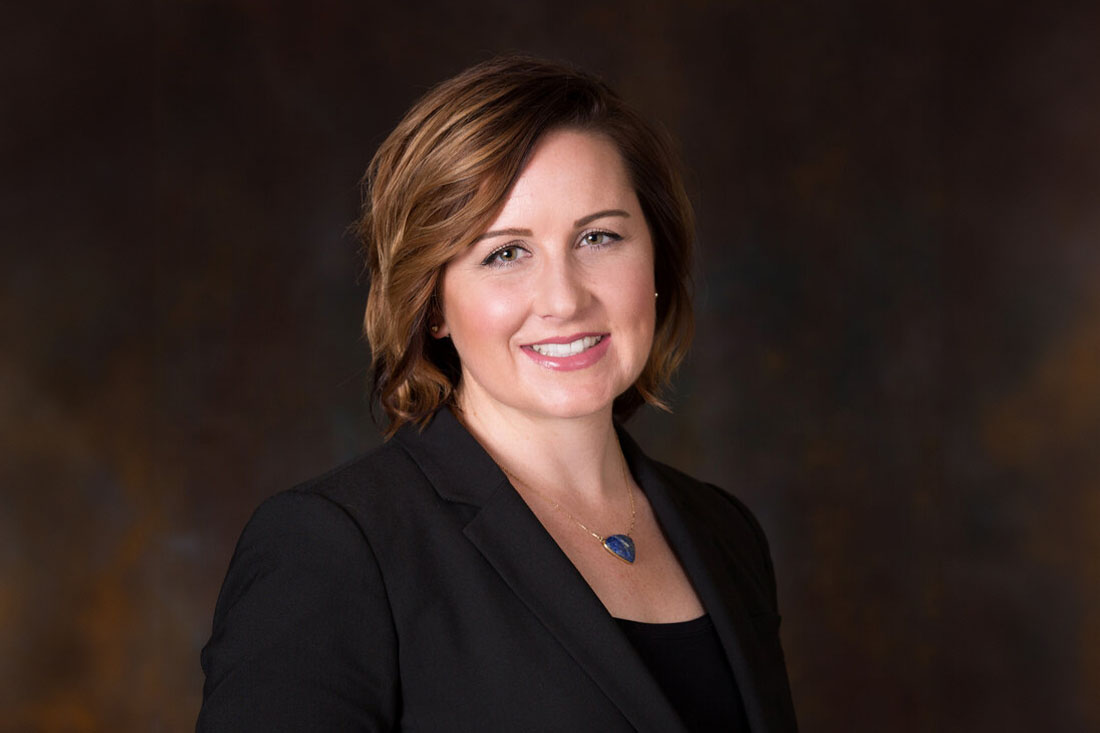
Megan Myers has been named Falk College Assistant Dean of Advancement effective March 1, 2024. Myers will report to Dean Jeremy Jordan and lead all Falk College advancement efforts working closely with the Syracuse University Office of Advancement and External Affairs (AEA).
Myers joined Falk College’s advancement team as assistant director of development in December 2018 and was promoted to director of development in December 2021. In these roles, Myers successfully managed an assigned donor portfolio, established and managed relationships with Falk College alumni and donors, and collaborated with Syracuse University’s regional fundraising program.
“Megan has an exceptional history of success in creating new strategic partnerships and developing alumni engagement with Falk College,” says Falk College Dean Jeremy Jordan. “From new signature programs to targeted student support funds, Megan’s contributions have meaningfully advanced this College. I am confident that under her leadership we will continue to enrich the student experience.”
Prior to joining Falk, Myers was a development associate in AEA and highly successful as part of the inaugural Development Associate Team established as part of the planning for prospective donor development in the Forever Orange Campaign.
“I am thrilled to have the privilege to support Dean Jordan and advance his vision for the future for Falk College,” says Myers. “I look forward to continuing to build upon the excellent work my predecessor Dave Salanger has already initiated for the College by further developing relationships with alumni, parents, and friends of Syracuse University that create new opportunities for students and faculty.”
Myers previously worked as a development specialist with the Alzheimer’s Association, Nebraska Chapter, where she managed community-based, volunteer-driven events. In her professional career, she held positions with KLKN-TV in Lincoln, Nebraska, serving as a promotions manager and earning recognition as an Emmy-nominated reporter/anchor. She also contributed as an anchor for the weekend news at KEVN-TV in Rapid City, South Dakota, where she played a key role in achieving notable viewer market ratings.
She recently earned a master of public health from Syracuse University and holds a bachelor of arts in broadcast journalism and sociology from The Pennsylvania State University, where she was an Academic All-American and team co-captain for the women’s swimming and diving team.
Myers succeeds David Salanger, who will retire in March 2024. Salanger served 20 years at Syracuse, 18 of those with Falk College. During that time, he made a transformative impact on Falk College through alumni engagement, strategic partnerships, and critical financial gifts.
Among his contributions, Salanger was instrumental in guiding the generous gift from David B. Falk ’72 and Rhonda S. Falk ’74 that named the College in 2011. In addition, he secured the financial support for the renovation of Falk College Complex, previously the College of Law, in 2015. In the course of his service, Salanger raised over $40 million for the University and Falk College.
Making a Safer World
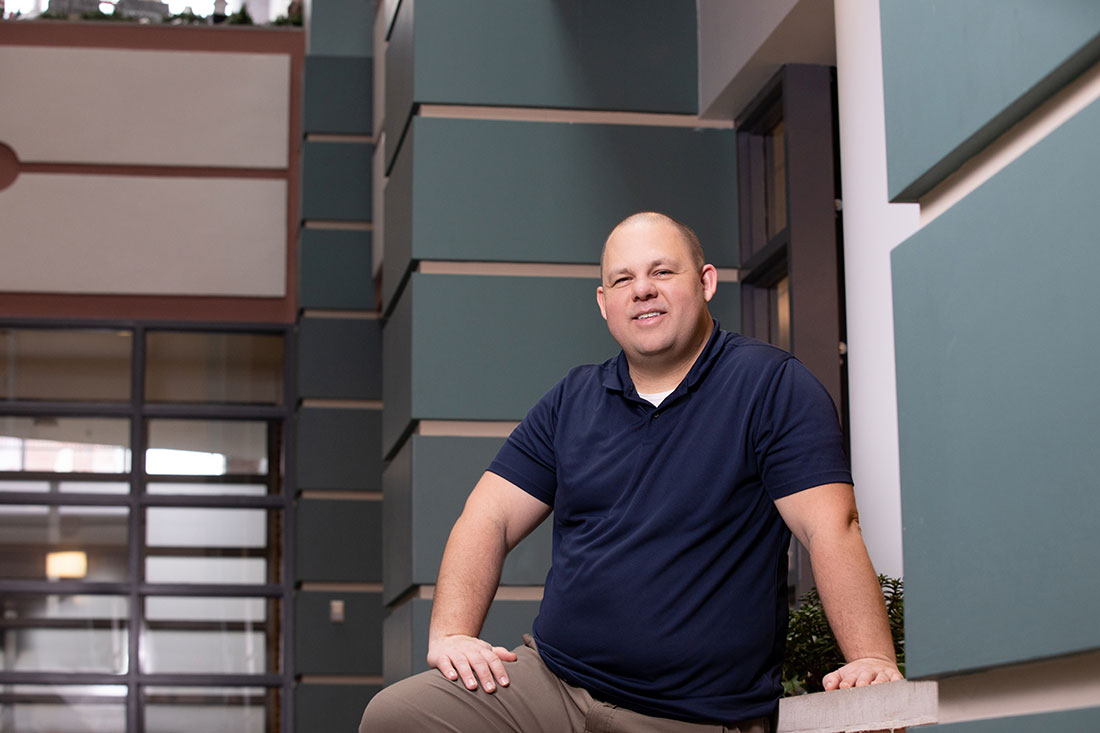
When Falk College Department of Public Health Chair and Professor David Larsen was notified that he had received a Fulbright U.S. Scholar Award to teach and continue his wastewater surveillance research at the Medical University of Innsbruck in Austria this spring, the academic in him was rightfully excited and proud to receive this prestigious honor.
But Larsen is also a father of four children, and that side of him had a slightly different reaction.
“I didn’t expect to get it because the European posts are quite competitive. When I received the email notification, it was kind of an ‘oh, crap’ moment. What have I done?” Larsen says, smiling.
What Larsen and his wife, Natalia, did was pack up their four children–Isabel, 13; Sophia, 11; Madeline, 8; and Teddy, 5–and travel roughly 6,500 miles to a house they’re renting in Birgitz, a village outside of Innsbruck, from January through July. Their daughters are attending English-speaking schools, while their son is attending a German-speaking preschool (German is the primary language in Austria).
“Their schooling is going to be a bit disrupted, but they’re good students who read a lot and we’ll keep on top of it and fill in the gaps they might miss,” Larsen says. “It is a ski town, so we’ll spend some time skiing, and the schools for the older girls had London excursions last year so perhaps they can do trips like that.”
Fulbright Scholar Awards are competitive fellowships that provide students, scholars, teachers, artists, and professionals of all backgrounds and fields the opportunity to study, teach and conduct research abroad, exchange ideas, and play critical roles in U.S. public diplomacy as they seek to find solutions to shared international concerns.
Since its establishment in 1946 under legislation introduced by the late U.S. Senator J. William Fulbright of Arkansas, the Fulbright Program has provided more than 390,000 scholarships and its alumni include 62 Nobel Laureates, 89 Pulitzer Prize winners, 78 MacArthur Fellows, and thousands of leaders and world-renowned experts in academia and many other fields across the private, public, and non-profit sectors.
At the outset of COVID in 2020, Larsen, an epidemiologist, led an interdisciplinary team of experts in coordination with the New York Department of Health to create a wastewater surveillance system throughout New York State. Today, the New York State Wastewater Surveillance Network is testing for COVID in at least one wastewater treatment plant in all 62 of the state’s counties, covering a population of 15.3 million. The New York State Wastewater Surveillance Network dashboard provides the most recent statistics regarding the network.

Before Larsen and his family traveled to Austria, we asked him about the Fulbright Award, what he’ll be doing in and outside of Austria, and why a wastewater surveillance system to test COVID and other infectious diseases is crucial to worldwide health. Here’s that conversation:
Why did you want this fellowship?
You submit for a specific award, and I submitted for a position at the Medical University of Innsbruck. I had reviewed their papers and there was good science coming out of there, so I reached out to their scientists who are working on wastewater surveillance in Austria and created their own network in the Tyrol region where Innsbruck is located.
I told them about my work in New York State and the wastewater surveillance network here, and they were supportive of my application.
What will you be doing at the Medical University of Innsbruck?
I’m a visiting professor and they’ve asked me to teach two courses that meet once a week and are equivalent to a 3-credit course here. I’m teaching a condensed version of my “Spatial Statistics for Public Health” course, and I developed an overview course for public health surveillance. Those were selected in brainstorming with my colleagues at Innsbruck who thought those would be of most value to their students.
In addition, I’m working with the wastewater-based epidemiologists there, and the research project attached to the Fulbright is the comparison of the networks in New York State and Tyrol.
Will you be working outside of Austria?
There’s a national wastewater network in Austria, and initiatives to establish a global network being led by Europeans. Europeans have been doing wastewater surveillance for drugs since 2010, and they’ve got a great model of collaboration across the different nation states. So, I hope to connect with that team and learn more about it, in addition to working with the Austrians.
I’m working here in New York State, primarily, and others are working across the globe on the same issue and building a global system. So, we’ll take the lessons we’ve learned and the challenges we’ve overcome here in New York and go to Austria, share those, and I hope to learn lessons they’ve learned and the challenges they’ve overcome in Austria, and then Europe, and more broadly. Hopefully, we’ll have a greater understanding and improved wastewater surveillance systems as a result.
Why is this collaboration so important?
We built this (network) with COVID, but we also built it for the future. Right now in New York State, local health departments are using the data we produce–particularly the sequencing data to track variants–but also the hospitalization forecasting that we provide them. Our aim is to provide the local health departments and the public with robust understanding of COVID-19 risk.
At the same time, COVID is not the only infectious disease, and there’s always potential for what we call ‘Disease X,’ which is the next emerging infection. It could be another coronavirus, it could be an avian influenza, it could be something we’re not thinking about right now. The goal is to make this system ready and prepared to empower the public health response to whatever comes in the future.
In New York State, we supported the polio response in 2022 and made a huge impact on understanding how many people were at risk of polio. We are piloting influenza, RSV, Hepatitis A, Norovirus, and Antimicrobial Resistance (which occurs when a virus doesn’t respond to medicine). Antimicrobial Resistance is a looming public health threat and could be very impactful. We do support the COVID response, but that’s the tip of the iceberg of where we hope the wastewater surveillance network goes.
The idea here is that perhaps most, if not all, infectious diseases can be surveilled or found in wastewater. Beyond that, drugs and environmental toxicants and pollutions and other measures of non-communicable diseases can be measured. How do we build this system to make the world a better place?
What motivates you to do this?
This came about because I wanted to safely open my kids’ schools. I wanted to get back to normal. When COVID hit, we shut down and I supported the response–I still support the response we had–but it was a response made without local understanding of risk.
Infectious diseases are local. You have travelers that take them from community to community, but you can have little enclaves of safe places. We had one at Syracuse University in the fall of 2020. It was safe from COVID because of the aggressive public health measures and the aggressive infectious disease surveillance we were doing with wastewater and testing.
Could we have a situation where infectious disease is threatening, but we have these little pockets of freedom? And that’s informed a lot of my work: How do we live a free life in a world affected by infectious disease? The way to do that, in my view, is to fight these diseases so they’re no longer a threat and then you have to be able to confirm that they’re not affecting people. That’s where infectious disease surveillance comes in.
Vaccinations are down, and a new COVID variant is on the rise. What’s your message to people as we approach the four-year anniversary of COVID?
People associate COVID with public health restrictions: masks, closed restaurants, closed schools, quarantine, isolation. But at its best, public health is empowering. Freedom from polio, the ability to drink tap water, the trust we have in our food system, the long-term health care as we get older. That is public health. And if we are on the front foot–if we prevent the disease–then we can avoid the restrictions that happen. The shutdowns are a last resort when we have overflowing morgues and overflowing hospitals and it’s a panic button. It was the last resort and that’s the situation we found ourselves in.
Real public health is, how do we build a system so we don’t get into that position again? Vaccines are part of that toolkit; clean air, air filtration, environmental adjustments are also part of that toolkit and infectious disease surveillance is definitely part of that toolkit.
Page 5 of 26
